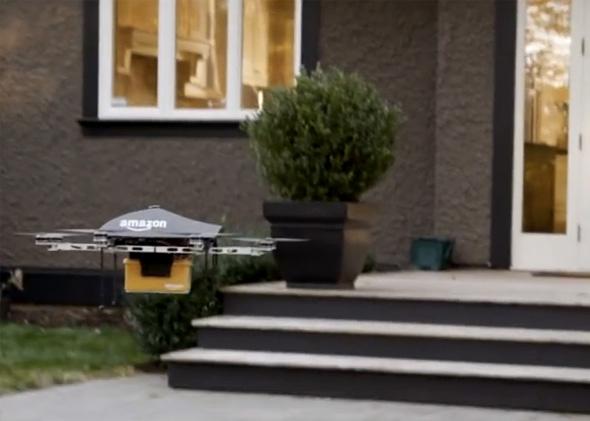Amazon started testing drone deliveries in the United Kingdom last month with the Civil Aviation Authority’s blessing. In the United States, though, Federal Aviation Administration regulations severely limit Amazon’s ability to conduct research. And the company isn’t standing for it.
In a letter to the FAA on Sunday, Amazon’s vice president of global public policy, Paul Misener said, “Without the ability to test outdoors in the United States soon, we will have no choice but to divert even more of our [drone] research and development resources abroad.” The Wall Street Journal reviewed the letter.
The FAA is working to evolve its drone policy, but it currently prohibits commercial drone flights and even testing. The agency processes exemption requests, 200 since 2005, it says, and Amazon applied for one in July, but has not been approved. The FAA said Monday that it requested more information from Amazon, according to the Journal. The agency is supposed to issue new regulations by September 2015, but audits suggest it will miss this deadline.
The U.K.’s Civil Aviation Authority also bans commercial use, but it allows for controlled testing. The FAA’s caution may be warranted given a recent report from the agency about the frequency of near-miss collisions between drones and airplanes. (The United Kingdom seems to be having the same problems.)
But Amazon appears to be appealing to the FAA’s competitive spirit, noting that it will take its research dollars elsewhere if the United States isn’t a hospitable environment for drone R&D. Other countries including Germany and France have been allowing drone testing. Misener wrote in Amazon’s July exemption application:
Granting this request will do nothing more than allow Amazon to do what thousands of hobbyists and manufacturers of model aircraft do every day. … One day, seeing Amazon Prime Air will be as normal as seeing mail trucks on the road today, resulting in enormous benefits for consumers across the nation.
The FAA is certainly between a rock and a hard place when it comes to these regulations, and the pressure from all sides is mounting. As Austin Choi-Fitzpatrick wrote for Slate in October, “The FAA must find a way to balance the profitability of businesses and safety of the general public with democracy’s most fundamental objectives: freedom of assembly and the press.”
